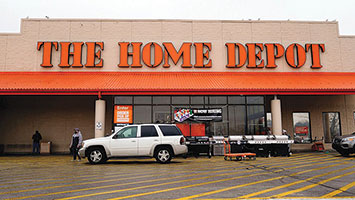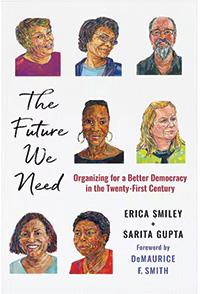Home Depot workers join workers at Starbucks, Apple and Amazon

By TIM ROWDEN
Managing Editor
Home Depot workers in Philadelphia filed a petition with the National Labor Relations Board Sept. 19 to form what could be the first store-wide union at the world’s largest home improvement retailer.
Their petition seeks to form a collective bargaining unit for 276 employees who work in merchandising, specialty and operations. If successful, the independent union would be the first at the Home Depot chain, the fifth-largest private employer in the U.S.
Worker discontent has galvanized Labor Movements at several major companies in the U.S. in the wake of the COVID-19 pandemic, with workers at Home Depot – a notoriously anti-union company – joining the surge in organizing efforts at other corporate behemoths including Starbuck’s, Amazon and Apple.
In a surprise victory, Amazon workers at a Staten Island warehouse voted in favor of unionizing in April.
At least 238 U.S. Starbucks stores have voted to unionize over the past year, according to the NLRB. Last month, rail workers won key concessions in a tentative agreement with rail companies that averted a potentially devastating shutdown of the nation’s freight trains.
 And Apple workers in Towson, Md., made history in June when they became the first U.S. retail store to vote to unionize, joining the International Association of Machinists and Aerospace Workers (IAM).
And Apple workers in Towson, Md., made history in June when they became the first U.S. retail store to vote to unionize, joining the International Association of Machinists and Aerospace Workers (IAM).
With the pandemic having sparked tensions over sick leave policies, scheduling, safety and other issues and worker shortages putting employers on the defensive, it’s clear workers have had enough and are coming to realize there is strength in a union.
The Labor Tribune recently interviewed Erica Smiley, executive director of Jobs with Justice and longtime Labor rights advocate Sarita Gupta, vice president of U.S. Programs for the Ford Foundation, co-authors of a newly released book, The Future We Need: Organizing for a Better Democracy in the Twenty-First Century, about what’s driving the surge in organizing and what may lay ahead.
Smiley and Gupta both said increased Labor activism is likely to continue.
 PANDEMIC EFFECT
PANDEMIC EFFECT
“I think coming out of the pandemic is this idea that people want more time, want to be fairly compensated, and even just want more time with their families,” Smiley said. “I think a lot of people have wanted to pivot from living just to work to working to live. I think certainly you add to that the pandemic way of defining certain sectors of people as essential, and people said, ‘Oh well, if I’m essential, why am I being treated so poorly?’
“I think that workers have always had leverage. I think it’s just shifted at different times depending on what’s happening in the economy and what’s happening in the world. I think what’s actually shifted is not that they have some new leverage, but actually that many people became more aware that they had it in the first place.”
U.S. approval of Labor unions is now at 71 percent, the highest it’s been in nearly six decades, according to a recent Gallup poll.
 ‘AN EXCITING TIME’
‘AN EXCITING TIME’
“It’s a very exciting time,” Gupta said. “This is an area that Erica Smiley and I talk a lot about in our book, just how interesting it is in this moment that workers are really in a position to collectively bargain and demand better outcomes, higher wages and better benefits and safer and healthier working conditions. Workers are really expressing loudly and clearly that they want to unionize and that really is the way for them.
“In all the work that Erica and I have done and conversations we’ve had with workers who are organizing, not only is it about wages and benefits and safer working conditions, but fundamentally it’s about a sense of respect,” she said. “I think that often doesn’t get talked about in the public narrative, that workers are really organizing for all those reasons and the respect piece is really important because they feel like decisions are constantly being made without their input or thinking certainly that they’re not centered in any of the decisions that are being made in ways that allow for them to work with dignity.”
‘TO FEEL LIKE MY WORK IS VALUED’
Gupta said the pandemic raised issues about health and safety and questions for workers about whether their jobs are worth their sacrifice under the current conditions.
“I think workers across the economy have been asking questions like, ‘What do I need in order to feel like my work is valued?’” Gupta said. “That’s fundamentally why I think this union drive is happening. Certainly at Starbucks, as we’ve been seeing around the country, it’s been all about respect. It’s been about dignity.
“Workers understand that they need to have a voice and exercise bargaining power for many reasons, including that corporate profits are on the rise while workers and consumers are struggling. All of that is really stimulating, or it’s really what’s causing workers to say it’s time to stand up and actually, that we have bargaining power at this moment.”


